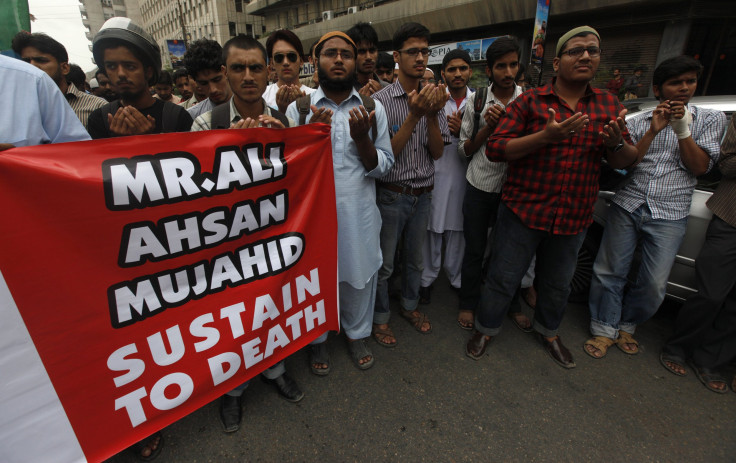Bangladesh Rejects Top Islamist Leader Ali Ahsan Mohammad Mojaheed's Appeal Of Death Sentence

Bangladesh’s Supreme Court on Tuesday “dismissed” top Islamist leader Ali Ahsan Mohammad Mojaheed’s appeal against his death sentence for crimes committed during the country's 1971 war of independence, according to reports. The decision was taken by a four-member panel headed by the country's chief justice.
Mojaheed, general secretary of the Jamaat-e-Islami party and the country's second highest-ranked Islamist leader, was reportedly convicted in 2013 of five charges including murder, abduction and torture. The ruling triggered nationwide protests by his supporters.
"The death penalty handed down to him has been upheld," prosecutor Soumya Reza told Agence France-Presse (AFP).
The 65-year-old could be hanged within months if the case is not reviewed by the court or if the country's president denies a clemency request, the Associated Press reported.
Bangladesh's highest court has previously dismissed such reviews of two other senior Jamaat officials, leading to their execution, AFP reported, adding that they had declined to seek presidential clemency. Bangladesh reportedly claims that Pakistani soldiers, backed by local collaborators like Mojaheed, killed about 3 million people and raped 200,000 women during the 1971 conflict.
Mojaheed was reportedly found guilty of being the chief commander of Al Badr, a paramilitary wing of the West Pakistan Army, that carried out "extermination of intellectuals," including popular Bangladeshi writers, journalists and professors.
His lawyers reportedly claim that his name was not in the list of Al Badr commanders or activists that was published by the post-independence government.
"We'll seek a review of the Supreme Court judgement," defense lawyer Shishir Manir told AFP.
© Copyright IBTimes 2025. All rights reserved.





















